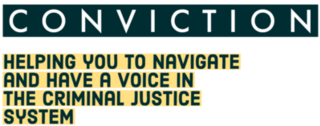
A barrister is a type of lawyer in common law jurisdictions. Barristers mostly specialise in courtroom advocacy and litigation. Their tasks include arguing cases in courts and tribunals, drafting legal pleadings, researching the law and giving legal opinions.

A lawyer is a person who is qualified to offer advice about the law, draft legal documents, or represent individuals in legal matters.
Vexatious litigation is legal action which is brought solely to harass or subdue an adversary. It may take the form of a primary frivolous lawsuit or may be the repetitive, burdensome, and unwarranted filing of meritless motions in a matter which is otherwise a meritorious cause of action. Filing vexatious litigation is considered an abuse of the judicial process and may result in sanctions against the offender.
Gideon v. Wainwright, 372 U.S. 335 (1963), was a landmark U.S. Supreme Court decision in which the Court ruled that the Sixth Amendment of the U.S. Constitution requires U.S. states to provide attorneys to criminal defendants who are unable to afford their own. The case extended the right to counsel, which had been found under the Fifth and Sixth Amendments to impose requirements on the federal government, by imposing those requirements upon the states as well.
Legal aid is the provision of assistance to people who are unable to afford legal representation and access to the court system. Legal aid is regarded as central in providing access to justice by ensuring equality before the law, the right to counsel and the right to a fair trial. This article describes the development of legal aid and its principles, primarily as known in Europe, the Commonwealth of Nations and in the United States.
A McKenzie friend assists a litigant in person in a court of law in Australia, Canada, England and Wales, Hong Kong, Northern Ireland, the Republic of Ireland, and New Zealand, by prompting, taking notes, and quietly giving advice. They need not be legally trained or have any professional legal qualifications.
A public defender is a lawyer appointed to represent people who otherwise cannot reasonably afford to hire a lawyer to defend themselves in a trial. Several countries provide people with public defenders, including the UK, Belgium, Hungary and Singapore, and some states of Australia. Brazil is the only country in which an office of government-paid lawyers with the specific purpose of providing full legal assistance and representation to the needy free of charge is established in the constitution. The Sixth Amendment to the US Constitution, as interpreted by the Supreme Court, requires the US government to provide legal counsel to indigent defendants in criminal cases. Public defenders in the United States are lawyers employed by or under contract with county, state or federal governments.
Shaw Trust is a charitable organisation in the United Kingdom which supports people with complex needs into good work. It was founded in the village of Shaw in Wiltshire in 1982.
In criminal law, the right to counsel means a defendant has a legal right to have the assistance of counsel and, if the defendant cannot afford a lawyer, requires that the government appoint one or pay the defendant's legal expenses. The right to counsel is generally regarded as a constituent of the right to a fair trial. Historically, however, not all countries have always recognized the right to counsel. The right is often included in national constitutions. Of the 194 constitutions currently in force, 153 have language to this effect.
A duty solicitor, duty counsel, or duty lawyer, is a solicitor whose services are available to a person either suspected of, or charged with, a criminal offence free of charge, if that person does not have access to a solicitor of their own and usually if it is judged by a means test that they cannot afford one. The system is operative in several Commonwealth countries, including the United Kingdom, Australia, New Zealand and Canada.
A law centre is a specific type of not-for-profit legal practice in the United Kingdom which provides legal aid to people otherwise not able to access commercial legal support. Law centres are independent and directly accountable to the communities they serve, usually through committees of local community members. The Law Centres Network (LCN) represents law centres in all levels of government.
In common law, a right of audience is generally a right of a lawyer to appear and conduct proceedings in court on behalf of their client. In English law, there is a fundamental distinction between barristers, who have rights of audience in the superior court, and solicitors, who have rights of audience in the lower courts, unless a certificate of advocacy is obtained, which allows a solicitor advocate to represent clients in the superior courts also. There is no such distinction in American law.

Legal Aid Ontario (LAO) is a publicly funded and publicly accountable non-profit corporation, responsible for administering the legal aid program in the province of Ontario, Canada. Through a toll-free number and multiple in-person locations such as courthouse offices, duty counsel and community legal clinics, the organization provides more than one million assists to low-income Ontario residents each year.
Alternative dispute resolution (ADR), or external dispute resolution (EDR), typically denotes a wide range of dispute resolution processes and techniques that parties can use to settle disputes with the help of a third party. They are used for disagreeing parties who cannot come to an agreement short of litigation. However, ADR is also increasingly being adopted as a tool to help settle disputes within the court system.
Pro se legal representation means to argue on one's own behalf in a legal proceeding, as a defendant or plaintiff in civil cases, or a defendant in criminal cases, rather than have representation from counsel or an attorney.
Legal aid in the United States is the provision of assistance to people who are unable to afford legal representation and access to the court system in the United States. In the US, legal aid provisions are different for criminal law and civil law. Criminal legal aid with legal representation is guaranteed to defendants under criminal prosecution who cannot afford to hire an attorney. Civil legal aid is not guaranteed under federal law, but is provided by a variety of public interest law firms and community legal clinics for free or at reduced cost. Other forms of civil legal aid are available through federally-funded legal services, pro bono lawyers, and private volunteers.

Legal financing is the mechanism or process through which litigants can finance their litigation or other legal costs through a third party funding company.
Legal aid in Germany is "embedded in the court system and is seen as a part of this". Germany was the first country to provide free legal aid representation for the poor in 1919, and represents the archetype of the so-called judicare system.
Access to justice is a basic principle in rule of law which describes how citizens should have equal access to the justice system and/or other justice services so that they can effectively resolve their justice problems. Without access to justice, people are not able to fully exercise their rights, challenge discrimination, or hold decision-makers accountable for their actions.

Conviction C.I.C. is a United Kingdom-based non-profit community interest company. Founded by Ryan Jarvis, Conviction states that its mission is to help people and communities navigate and have a voice in the criminal justice system in England and Wales. The organisation is volunteer-led and provides advocacy, legal casework support, and engages in policy work to ensure fair treatment and access to essential resources.






